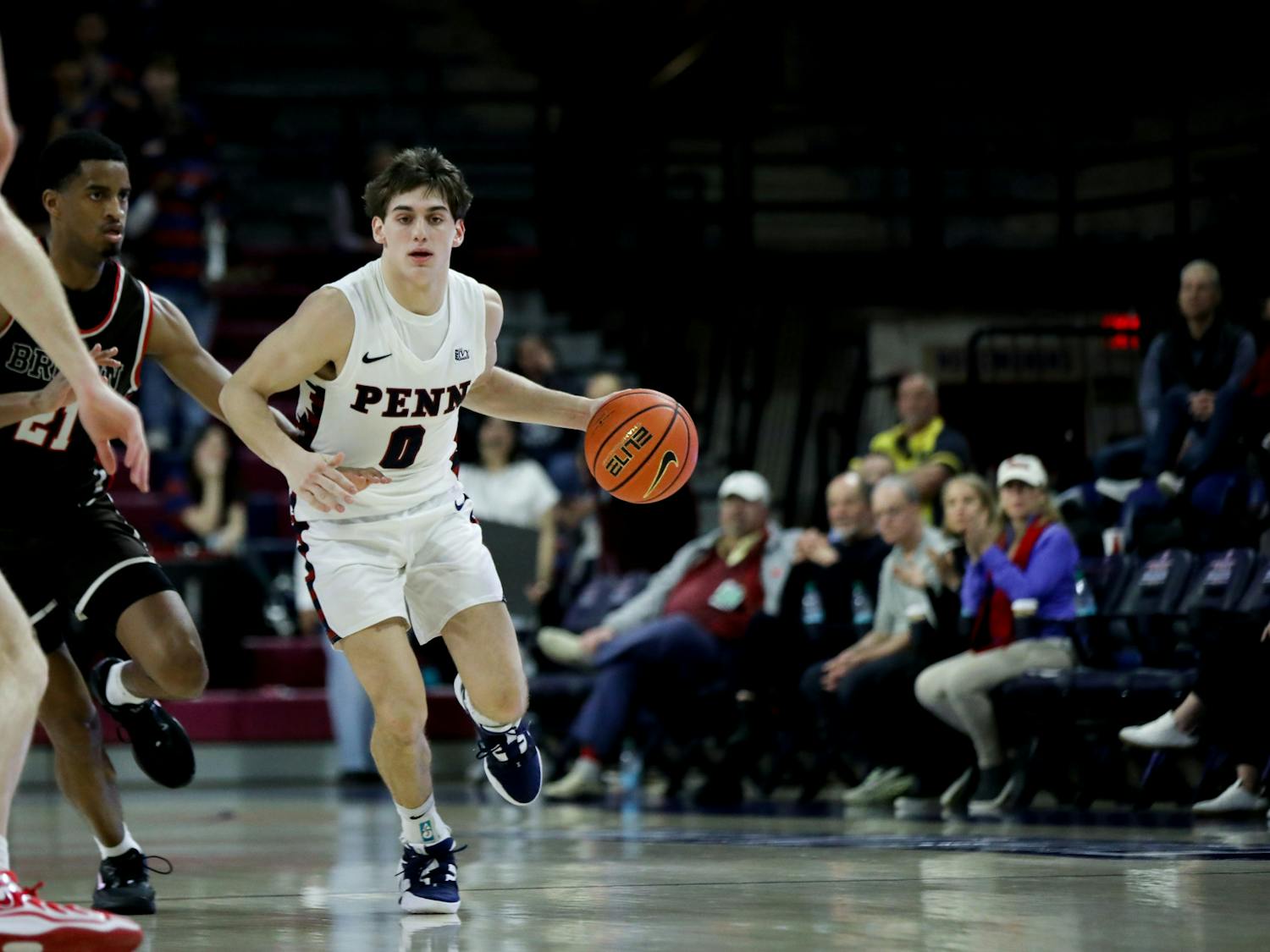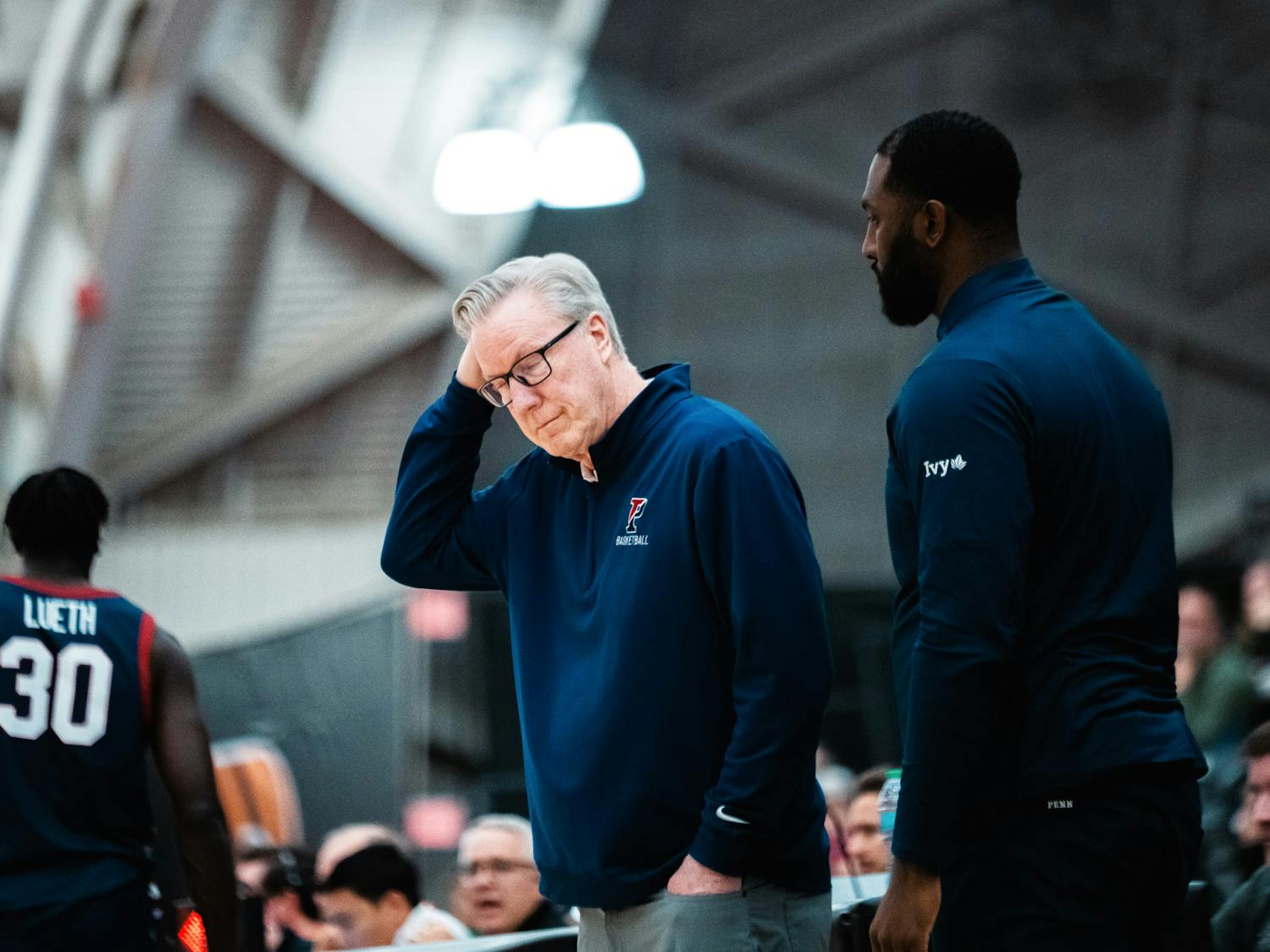After much opposition from athletes and coaches alike, there appears finally to be potential movement on the issue of the seven-week moratorium.
Princeton Athletic Director Gary Walters announced that Princeton officials reached a "broad framework for compromise" to replace the current seven-week moratorium, according to an April 17 Daily Princetonian article. The current moratorium -- enacted in June 2002 -- states that athletes may not participate in coach-supervised practices for seven weeks between the traditional and nontraditional sports seasons.
"The moratorium was enacted to address concerns that athletic activities were too intensive and time-consuming, preventing student-athletes from participating in academic and other co-curricular activities," Penn Athletic Director Steve Bilsky said in an e-mail statement.
Several coaches and athletes have criticized the rule, which treats every sport the same.
"The moratorium is indeed a blunt instrument," Bilsky wrote.
The current moratorium "was met immediately by strong dissatisfaction by student-athletes and coaches," Bilsky wrote. "Student-athletes' negative reaction was based on the fact that they chose the Ivy League... because they felt there was a good balance between academics and athletics and that these restrictions limited their abilities to fulfill their individual potential.
"Coaches were troubled by the moratorium in that the off-season provided them the opportunity to work with the athletes, especially underclassmen, in a more relaxed setting, one more conducive to teaching."
Princeton's proposal limits practice to four days a week between the traditional and nontraditional seasons and retains the existing Ivy League limit of six practice hours per week during the inter-season period.
Bilsky noted in the statement that there are several proposals being considered -- including Princeton's.
"I would be surprised if [the moratorium] is not changed when the [Ivy League] presidents meet in June," Bilsky wrote. The proposal addresses the "presidents' initial concerns about the intensity of the athletic experience, without limiting individuals' and teams' ability to achieve and grow."
With various proposals to replace or amend the moratorium in June, the Ivy League presidents will have several options should it choose to change the moratorium.
"There are several new presidents," Bilsky wrote. "And no one knows what direction they will take us.... However, as the reaction to the moratorium showed, sometimes officials underestimate the strength of the desire to have excellent athletic programs on our campuses."
Bilsky commented that the reforms being suggested could have a negative impact on Penn's athletic program and the Ivy League as a whole, particularly in its ability to compete outside of the Ancient Eight.
"Although no one is stating [the removal of external competition] as a goal, the series of reform measures being contemplated could have this outcome as an unintended end result," Bilsky wrote.
Bilsky and others have expressed concern that the reforms could move the Ivy League toward becoming an NCAA Division III conference.
"There are no discussions about moving away from Division I. However, there has been a great deal of discussion about reform," Bilsky said. "There is a fine line between reform and de-emphasis."
Bilsky denoted the current moratorium as "an example of acting hastily and not understanding ramifications.
"My hope is that the presidents act thoughtfully in their deliberations and recognize that the existing Ivy model, while not perfect, is the best Division I model that currently exists in terms of respecting the student-athletes' desires to excel both academically and athletically," Bilsky said.








